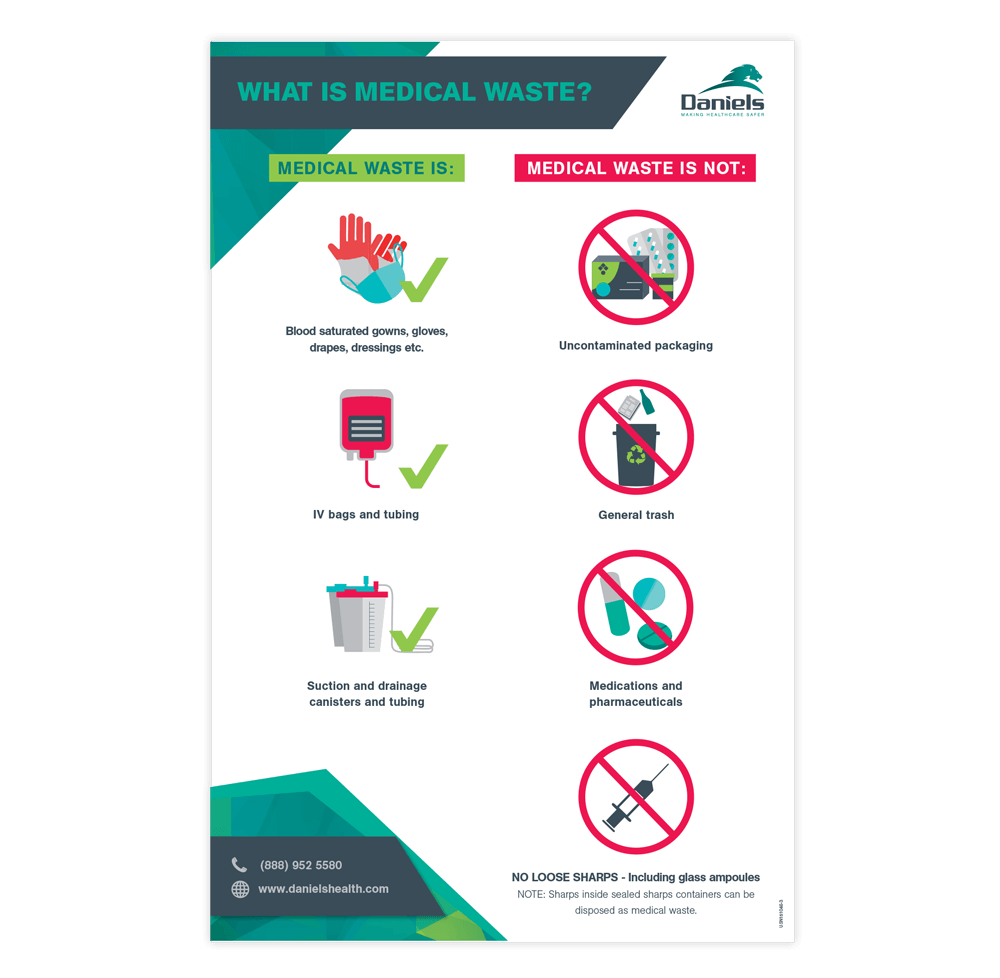Tailored Medical Waste Disposal Services: Custom-made Solutions for Your Demands
Tailored Medical Waste Disposal Services: Custom-made Solutions for Your Demands
Blog Article
Responsible Solutions: Understanding Medical Waste Disposal Solutions
In the realm of medical care, the proper disposal of clinical waste is a critical facet that requires cautious factor to consider. As healthcare centers produce numerous types of waste that call for specialized handling, understanding the nuances of clinical waste disposal solutions is extremely important.
Significance of Proper Clinical Garbage Disposal
Appropriate clinical garbage disposal is crucial in preserving a sanitary and risk-free setting within healthcare facilities. In healthcare settings, numerous sorts of waste are created daily, consisting of transmittable products, sharps, ran out medications, and chemical substances. Otherwise correctly taken care of, these wastes can position major threats to both health care workers and the public. Improper disposal can lead to the spread of infections, injuries from sharps, contamination of water resources, and damage to the setting.

Sorts Of Medical Waste
Within health care centers, a varied range of waste products identified as medical waste is generated, each requiring certain handling and disposal techniques. Pathological waste, which consists of cells, organs, and body parts, requires correct disposal to respect the dignity of the dead and stop any type of biohazards. Comprehending the various kinds of medical waste is crucial for medical care centers to apply reliable waste administration approaches and shield public health and the environment.
Laws and Compliance
Health care facilities have to adhere to rigid regulations regarding the handling and disposal of clinical waste to make sure compliance with legal requirements and safeguard public health and wellness. These regulations are put in area to prevent the spread of infections, shield the setting, and preserve the security of health care workers and the general public. Different governing bodies, such as the Epa (EPA), the Occupational Safety And Security and Wellness Administration (OSHA), and the Division of Transportation (DOT), have certain standards that health care facilities have to comply with.
To conform with these regulations, healthcare facilities need to effectively set apart, store, transport, and deal with various sorts of medical waste. This includes sharps waste, infectious waste, hazardous waste, and pharmaceutical waste, each calling for specific taking care of procedures. Facilities needs to likewise preserve exact records of waste generation and disposal to demonstrate conformity throughout examinations.
Non-compliance with clinical waste laws can cause extreme fines, fines, and damages to the facility's track record. For that reason, it is essential for healthcare centers to stay notified concerning the most up to date guidelines and carry out durable compliance actions to shield public health and the atmosphere.
Advantages of Specialist Disposal Providers
Involving professional medical waste disposal solutions supplies medical care facilities a efficient and trusted option for taking care of hazardous products. These solutions utilize skilled experts who are skilled in managing various kinds of medical waste, guaranteeing correct partition, packaging, transportation, and disposal. Medical Waste Disposal Services.
In addition, professional disposal solutions utilize modern devices and follow sector best why not find out more techniques to minimize ecological influence and lower the risk of contamination. This not just promotes a more secure work setting for medical care team yet likewise adds to general public health and wellness and safety and security. Furthermore, outsourcing medical waste disposal can cause cost financial savings over time by getting rid of the demand for internal administration and disposal systems.
Sustainable Practices in Healthcare

One secret lasting method in healthcare is waste decrease. By carrying out strategies to reduce unneeded packaging, single-use items, and total waste generation, healthcare centers can substantially decrease the amount of waste sent to land fills or incineration. Furthermore, reusing programs for products like paper, glass, and plastic can additionally minimize the ecological impact of healthcare procedures.

Conclusion
Finally, appropriate medical waste disposal is crucial in maintaining a risk-free and healthy environment for both health care employees and the general public. Recognizing the different types of medical read review waste, following policies and their explanation compliance criteria, and using expert disposal services are essential steps in liable waste administration. By adopting sustainable practices in health care centers, we can decrease environmental impact and make certain the health of all individuals associated with the health care sector.
As medical care facilities create numerous kinds of waste that need specific handling, understanding the subtleties of clinical waste disposal services is extremely important.Within healthcare centers, a diverse array of waste materials classified as clinical waste is generated, each requiring certain handling and disposal techniques. Comprehending the different types of clinical waste is vital for health care facilities to carry out effective waste monitoring techniques and secure public health and the environment.
By executing strategies to minimize unneeded product packaging, single-use items, and overall waste generation, medical care centers can dramatically decrease the amount of waste sent out to garbage dumps or incineration. Comprehending the various kinds of medical waste, following guidelines and compliance standards, and utilizing professional disposal services are essential actions in responsible waste management.
Report this page